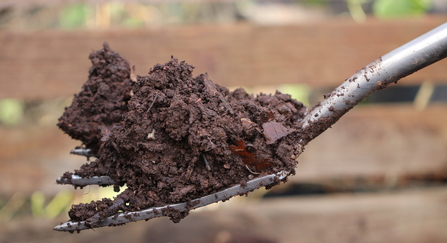What is it?
Compost used on farms is just the same as compost used in the garden but is made on a much larger scale. It can incorporate FYM as well wood chippings and green waste and is aerated and kept at a good temperature to ensure bacteria, fungi and microarthropods can grow. This means the organic matter is already inoculated with components that break it down into plant available forms for when it goes into the soil. FYM also provides organic matter which will be broken down within soils.
Benefits for farmers:
- Applying compost or FYM are two of the most effective ways of increasing soil organic matter (SOM) over time which helps to feed the biology that lives within the soils and creates more pockets within soils for water infiltration and drainage.
- Compost helps to inoculate the soil with the right biology which improves soil health and makes nutrients more readily available, helping crops to thrive.
Benefits for the environment:
- Increasing SOM helps microscopic life in the soil to thrive kick starting the base of the food web and allowing larger animals to flourish too.
- Putting organic matter back into soils also means storing carbon which helps fight climate change.
Points to consider:
- Composting can be more labour intensive and expensive than FYM but produces better results
- Inoculating composts can help to boost beneficial bacteria and fungi even further.
Useful resources:

Lauren Heather
